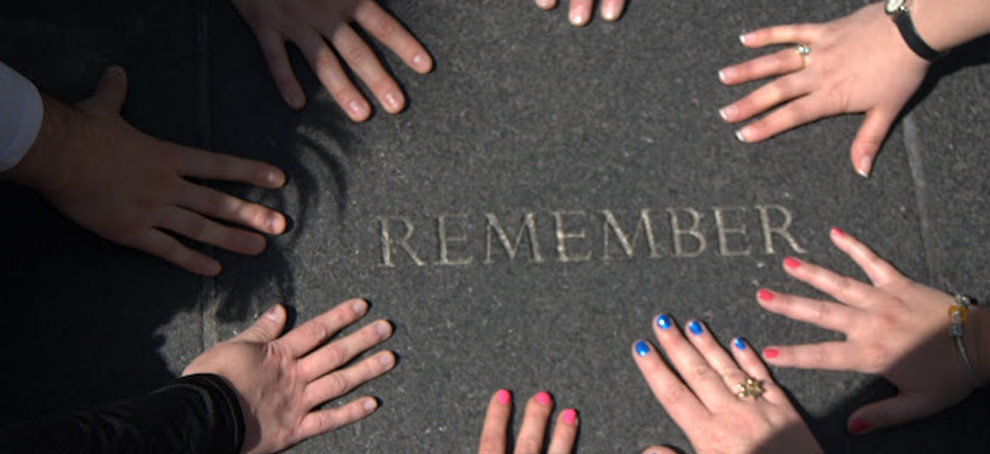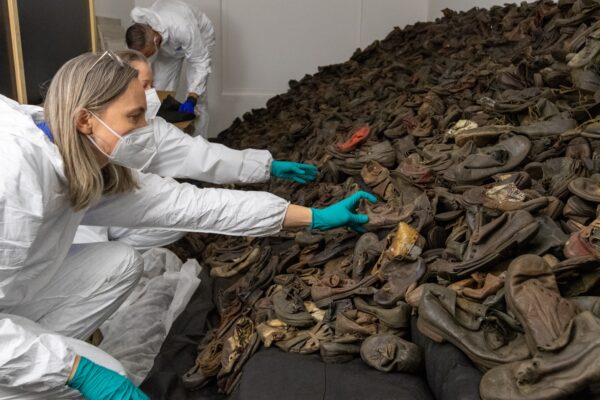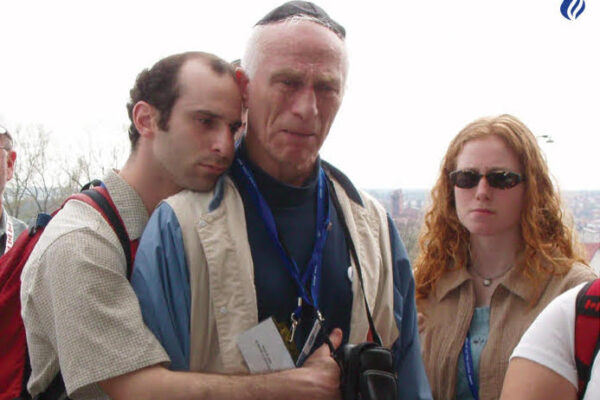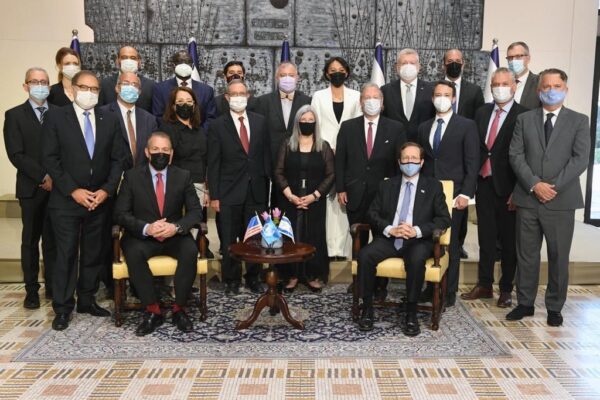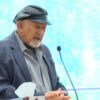The passing of Elie Wiesel serves as a timely reminder that one day soon Holocaust survivors will no longer be able to tell their own stories.
In a world where Holocaust denial is rampant, Generation Y and Z prefer videogames to reading books, and sensationalist culture has inspired apathy to the horrors of mass murder, the risk of our collective memory of the Holocaust fading into oblivion becomes realer and realer. Everyone can play a role in reducing the risk, but the burden perhaps falls more squarely on the shoulders of those like myself, third-generation Holocaust survivors.
Yet how exactly can we ensure that the 11 million people (6 million of them Jews) who burned in the crematorium and choked in the gas chambers are not forgotten?
Document Family History While We Still Can.
This is the first, most obvious step. Write a key to ancient family photos, detailing the names and fates of those pictured. Type up the memories that Holocaust survivors in your family share. Record their stories on videotape if still possible.
The most challenging part of documentation may be convincing survivors to speak about what for many of them remains unspeakable. Not uncommonly, Holocaust survivors have kept from going insane only through silence, internalizing their trauma and burying it deep inside them. Many of their children grew up only with a vague understanding of their parents’ unimaginable past, unable to identify any distinct features on the dark shadows lurking all about their homes.
The grandchildren of Holocaust survivors, however, are often in an unparalleled position to learn about their grandparents’ pasts. The explanation may be that when survivors reach an older age, they recognize the urgency of finding a receptacle for their memories – a younger body and mind with greater ability to pass along history to future generations. And when this realization happens, survivors frequently choose their grandchildren as their audiences. This should be considered a privilege, not a burden.
Make the Choice to Take an Interest.
Most third-generation Holocaust survivors in the United States grew up as normal American children, with our European-born grandparents speaking English to us and our religion never provoking even a fraction of the degree of anti-Semitism that was the norm in Europe in World War II.
Living in a world of equal opportunity and religious freedom seems to present us with a choice: How “Jewish” do we really want to be? How much should we allow our family’s Jewish history to be part of who we are today? To what extent should we share our grandparents’ Holocaust stories with those around us? Despite being unaffected by it personally, some third generation Holocaust survivors choose to make the Holocaust part of their identities, while others choose to completely separate from it. If history is to not be forgotten and repeated, we need more individuals to select the former path and to truly take an interest in Holocaust.
Choosing the former path can manifest itself in a variety of ways. Reading classic books like Elie Wiesel’s Night is a good start, followed by more eclectic tales, such as Ka-tzetnik’s House of Dolls (about Jewish girls in concentration camps forced to sexually entertain Nazis soldiers). Holocaust films like Schindler’s List and The Pianist are easy educational tools as well. Many universities even offer Holocaust studies classes. Taking just one or two classes will allow students to be informed enough to play a role in educating others.
Support Israel.
Israel remains the most prominent symbol of hope after the Holocaust. It represents the failure to destroy an entire people and the resilience of the Jews to continue to flourish after unthinkable atrocities. As long as Israel continues to exist, Jews will never again have nowhere to turn when the countries they call home turn against them. Israel is a haven and a home for any and all Jews around the world facing anti-Semitism. In the past few years, for example, French Jews have immigrated to Israel in large numbers as a result of rampant anti-Semitism in France, and they have been welcomed with open arms. Israel’s creation and the Holocaust are forever intertwined.
In 2013, Israel’s population reached a symbolic 6 million Jewish citizens, the same number of Jews murdered in the Holocaust. This was a victory in itself.
Nevertheless, Israel remains the size of New Jersey and faces threats to its existence. Too many Jews today feel no responsibility to lend support to Israel, not understanding why its existence is so crucial or taking it for granted. Contributing can take many forms – from visiting the country to donating to Israeli organizations to rallying senators to reject anti-Israel legislation. Becoming an advocate for Israel is also critical; being an advocate means participating in dialogue on the Arab-Israeli conflict with friends and colleagues and correcting inaccuracies whenever possible. Self-education on both sides of the conflict is key.
Israel’s continued existence is too important to preventing another Holocaust to allow the tiny nation to fend for itself unsupported.
Take Pride in Our History.
History is never remembered objectively. It is not simply a compilation of facts. Instead, history is molded and altered by the way people choose to retell it from generation to generation.
Third generation Holocaust survivors, playing a critical role in the way successive generations will understand the Holocaust, have a choice in how to present the atrocities. Whether World War II’s Jews are perceived as strong or weak, for example, might be as simple as what events and memories are emphasized over others. Consider that International Holocaust Remembrance Day (celebrated in the United States) takes place on the anniversary of Auschwitz-Birkenau’s liberation by the Soviets, while Israel’s Yom HaShoah (Israel’s Holocaust remembrance day) is set on the anniversary of the Warsaw Ghetto Uprising. The former presents Jews as weak – as passive prisoners only able to gain freedom because of outside intervention – while the latter underscores the strength and active resistance of a people who refused to let the Nazis decide their fate for them. Sharing memories of the Holocaust in a way that more closely resembles the messages of Yom HaShoah rather than International Holocaust Remembrance Day will inspire a well-deserved pride in the resilience of the Jewish people.
As third generation Holocaust survivors, we should feel pride in our Jewish identity, the continued strength of the Jewish people in Israel and around the globe, and our unique privilege to pass on the legacy and memories of our families’ pasts.
Make the past part of our present, and it will live on in the future.
Originally Published Here
